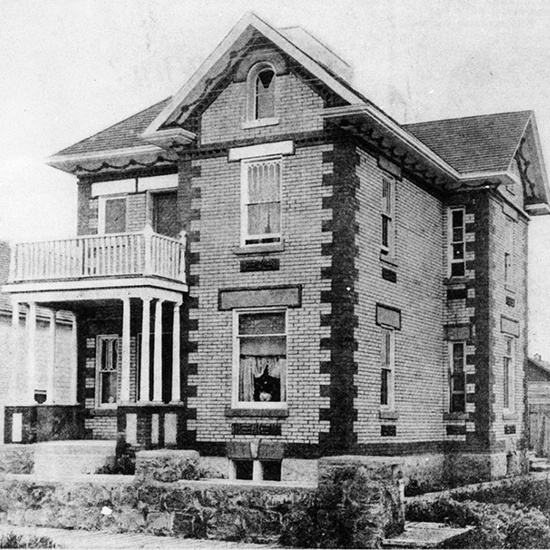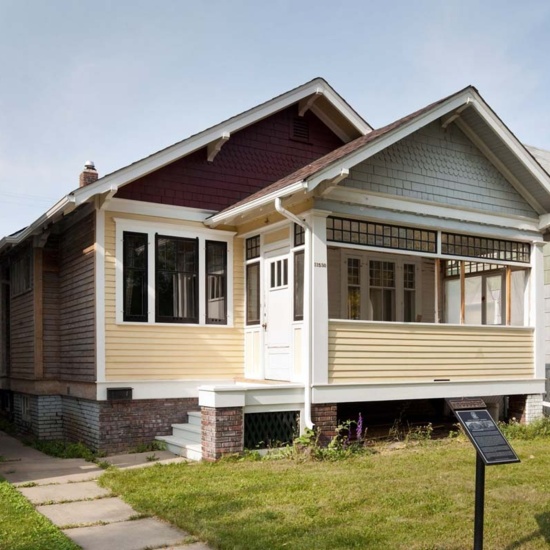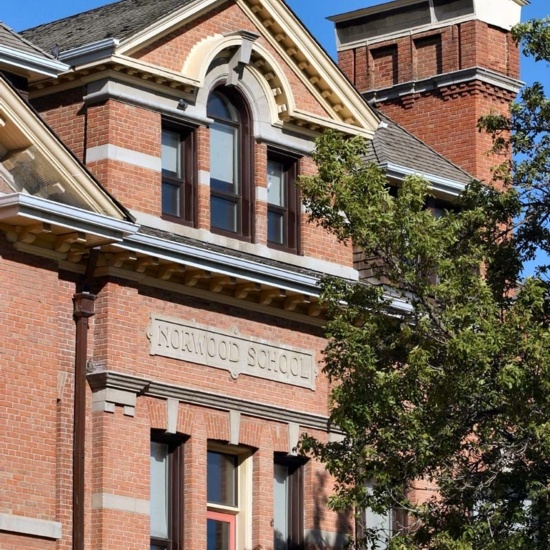Alberta Avenue
Originally called Norwood, this community was renamed after the original street name for 118 Avenue.
Originally called Norwood, this community was renamed after the original street name for 118 Avenue.
The year before Edmonton became incorporated as a city in 1904, the area between Fox Street (89 Street) and Namayo Avenue (97 Street), and Norwood Boulevard (112 Avenue) and Alberta Avenue (118 Avenue) was subdivided by the McDougall & Secord real estate company and named Norwood. A small school consisting of two buildings, three rooms in all, was established in 1906 with only wagon trails and footpaths leading to it and the few surrounding homes. There wasn’t much further north than this small residential community. Then, starting in 1908 a number of meat packing plants established themselves along the Canadian Northern Railway and Grand Trunk Pacific Railway lines just north of the city. A small town called North Edmonton, or Packingtown, as everyone called it, grew up overnight. At the same time, the town of Beverly became established, centred around the rich coal seams along the river near 118 Avenue. Edmonton ran a streetcar line along the major traffic corridors to reach these new industries and the people who lived along radial railway lines in 1916: up Syndicate (95 Street) and Namayo Avenues, along Norwood Boulevard, and Alberta Avenue. Many local improvements were inspired by these developments: streetcar traffic and the new brick Norwood School, constructed next to Rat Creek Ravine in 1909, necessitated wooden boardwalks; wire bringing electricity to Packingtown was strung through Norwood enabling its residents to enjoy streetlights and in-home power for the first time; and the city’s first paved street was a 1915 trial of bitumen sand along Kinnaird Street (now 82 Street), just south of Alberta Avenue. The Alberta Research Council determined that “this pavement had been subjected to heavy traffic, but was still in excellent condition in November 1919.”
The community of Norwood became an attractive area for Packingtown workers and other local industries like the Norwood Foundry to live, though it was also home to doctors, lawyers, and other professionals as well. Prior to the First World War, residents built bungalows or larger two-storey homes on the small residential lots closer to Norwood Boulevard, but people gradually filled in the tree-lined streets to the north before the 1950s. 118 Avenue and the mom and pop shops, restaurants, and local businesses that lined this vibrant avenue became the focal point of the neighbourhood. The Norwood Community League and the Alberta Avenue Community both began in 1922: Norwood’s hall was along 114 Avenue, Alberta Avenue’s hall was just north of 118 Avenue in a district known as Fairview. The name of this area became somewhat interchangeable and Edmontonians referred to the community as Norwood or Alberta Avenue. The City officially termed the area Alberta Avenue in the 1980s. As a result of a plebiscite in 1914, Edmonton’s sometimes inconsistent street names were replaced by our current numbering system, however 118 Avenue was changed back to Alberta Avenue in 1994.
By the 1970s this community was falling into disrepair. The City responded by developing a Neighbourhood Improvement Plan (NIP). They replaced community sewers, upgraded the streetscape along 118 Avenue, injected money into the community league to enable expansion of their services and a playground upgrade. A controversial system of one-way streets was attempted but the confusing scheme was abandoned a short while later. One lasting result from the NIP was funding for a multipurpose centre which became the new Alberta Avenue Community League building. City and community-led improvements continued through the 1990s; in 1999 the Sports Walk of Fame was opened, celebrating Edmonton’s basketball, hockey, football, baseball, and even hot air ballooning successes. Local residents and businesses have always been the heart of this community and establishments like Alberta Cycle, the Avenue Theatre, Myhre’s Music, and Shiloh Baptist Church have joined engaged community members over the years to counter some inner city issues and infrastructure deterioration, making Alberta Avenue a centre for arts activities and city festivals.
Details
Sub Division Date
TBA


